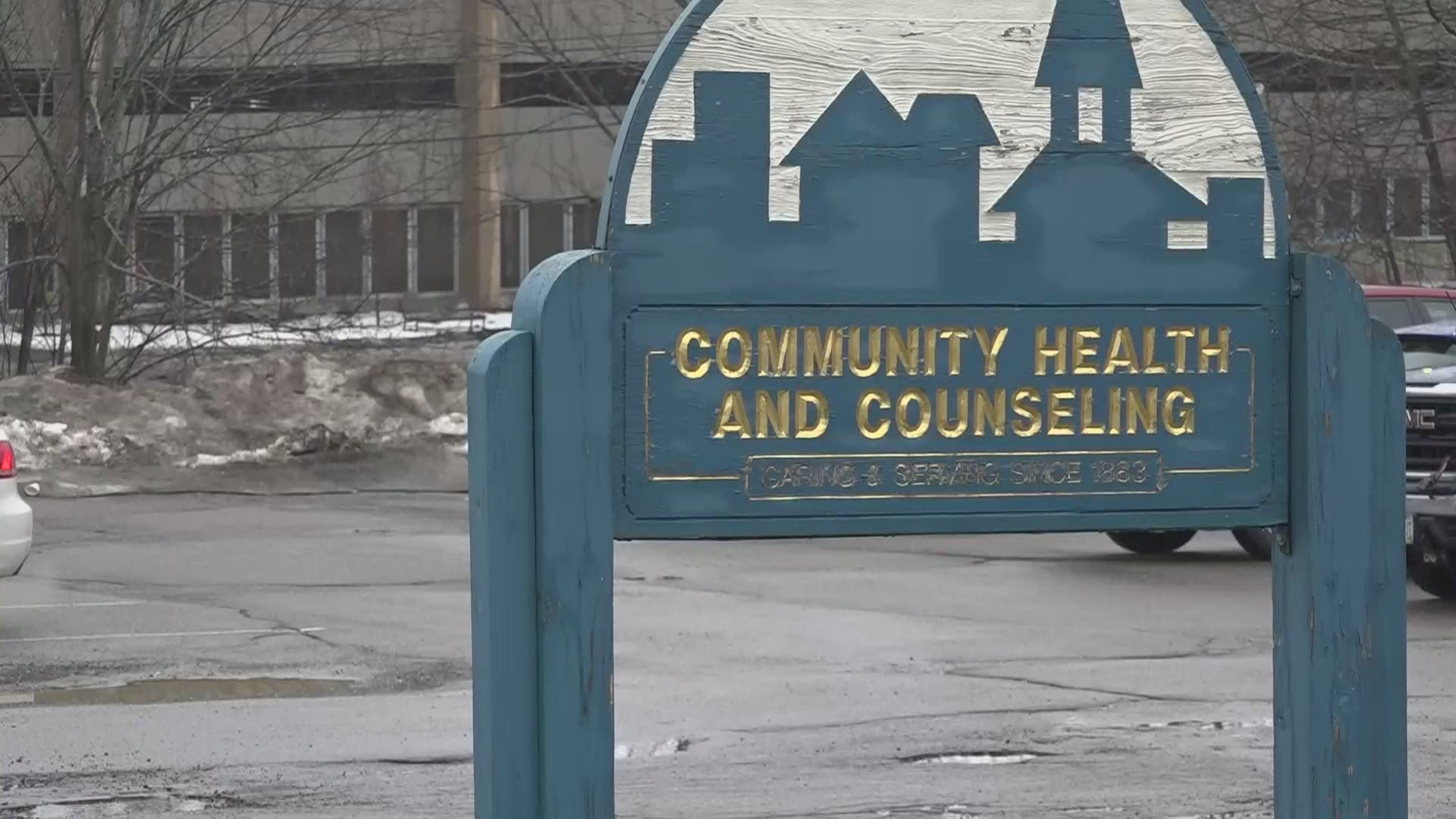BANGOR, Maine — Two organizations in Maine have been awarded more than $6.1 million to help address the growing demand and need for mental health and substance use treatment services. The money comes from the U.S. Department of Health and Human Services' Substance Abuse and Mental Health Services Administration, as the pandemic continues to affect millions of lives nationwide.
The Maine organizations receiving these awards are Community Health and Counseling Services in Bangor and Sweetser, based in Saco and serving the midcoast, as well. CHCS was awarded more than $3.2 million, and Sweetser was awarded more than $2.9 million. This money will be used to help both providers implement a Certified Community Behavioral Health Clinic -- the first two in Maine. These clinics are designed to foster partnerships among a number of health care providers to make sure patients can get treatment when and where they need it.
"What we want to do is to make sure that when somebody walks through a door in this community in need of mental health service, in need of substance use services -- that they get connected, that they don't have to do more work to try to find a resource," Dale Hamilton, CHCS executive director, said.
"For us, if you're able to help one person -- certainly, we want to accomplish by helping many more -- but for that one person, that could mean so much for them and their family," Rose St. Louis, CHCS chief operating officer, noted.
Hamilton says CHCS is designed to bring its services to the people, which is why the CCBHC model will be convenient to make sure there is no "wrong door" for treatment. CCHS will be partnering with:
- Maine DHHS' Office of Behavioral Health
- Maine DHHS' Office of Child and Family Services
- Northern Light Acadia Hospital
- Penobscot Community Health Care
- Penquis
- St. Joseph Healthcare
- Wellspring
- Wings for Children & Families
RELATED: Peer addiction support: People in long-term recovery available as resources to those struggling
Sweetser will also be establishing a CCBHC with this money, to help expand services deliver in Sagadahoc, northern coastal Cumberland County, and parts of Lincoln and Androscoggin counties. Sweetser medical director Marc Kaplan says the organization will be responsible for filling out reports about the effectiveness of these partnerships -- with the goal in mind to continue post-pandemic and expand.
"It gives us the time to develop systems of partnership that eventually will be sustainable," Kaplan expressed about the grant.
Sweetser is still working to solidify partnerships, but already-existing partners that use their services include:
- Lincoln Medical Partners
- Martin's Point
- Mid Coast Hospital
- Mid Coast Primary Care Center
- Pediatric Associates of Lewiston
- Pen Bay Medical Center
- Wiscasset Family Health
This $6.1 million award is part of a greater initiative by SAMHSA to build more than 100 CCBHCs across the nation. The grants are coming from $4.5 billion allocated to SAMHSA as part of the COVID-19 relief package passed in December. Senators Angus King (I-ME) and Susan Collins (R-ME) announced the money for Maine a couple of weeks ago. Collins says it is "desperately needed".
"The pandemic has made us more aware of the fact that isolation and loneliness can lead to mental health problems and to addiction problems," Collins expressed. She says mental health is a bipartisan issue -- and she is pushing that money available now be given to agencies as soon as possible.
"It doesn’t matter if you're a Democrat, or an Independent, or a Green, or a Republican -- this is a problem that affects all of our families, our peers, our friends," Collins said.
King also believes it's a problem that will persist, even after the pandemic, calling addiction, suicide, and depression "diseases of despair".
"The pandemic has, I think, underlined how important this is," King noted. "It's not going to go away. These problems aren't going to go away when the pandemic goes away."
King says there is about a 30 to one disproportion when it comes to funding for physical disease research and mental health research. He says he is hoping to see more treatment options and more research opportunities moving forward.
"The key is getting the service to people on the ground where they need it," King explained.

